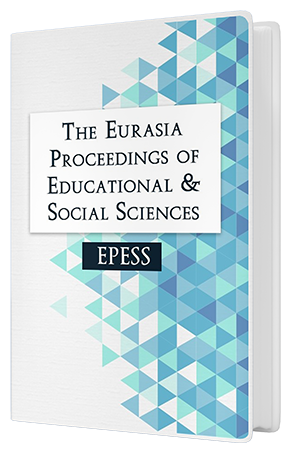A PROBLEM GENERATOR SYSTEM TO LEARN FIRST-DEGREE EQUATIONS
Keywords:
First-degree equation, problem-based learning, computer algebra system, problem generator, problem solverAbstract
Problem-based learning enhances academic productivity, and improves long-term memory. Thus it is better than traditional instruction. Meanwhile, the teaching of mathematics education is more important than others. Much software is developed for visual learning mathematics, but there is a great need for problem-based systems. This is more visible, due to the increasing proliferation of e-learning education. On the other hand, first degree equations are a uniquely important topic in high school and collage algebra classes, for the simple reason that mastery of a preponderance of later topics requires a student’s ability to solve these equations. Such topics include absolute value equation, equation containing fractions, radicals, and an abundance of applications. Proficiency at solving first degree equations in one variable is literally essential to success in an algebra class. Students often do not clearly understand the concepts of these topics and make mistakes when they write homework’s or use these concepts in the other topics. In order to help the students to learn these concepts by solving problems, we have proposed a system that generate problems and evaluate learner’s answers. In this paper we propose a methodological approach for automatic solving of mathematical equations, especially in terms of the first degree equations in one variable, with the aim of the practicing of mathematics subjects, by using of Computer Algebra System (CAS) tools. The paper also addresses some specific fields such as the simplification and automatic production of mathematical equations.Downloads
Published
Issue
Section
License
Copyright (c) 2014 The Eurasia Proceedings of Educational and Social Sciences

This work is licensed under a Creative Commons Attribution-NonCommercial-ShareAlike 4.0 International License.
The articles may be used for research, teaching, and private study purposes. Any substantial or systematic reproduction, redistribution, reselling, loan, sub-licensing, systematic supply, or distribution in any form to anyone is expressly forbidden. Authors alone are responsible for the contents of their articles. The journal owns the copyright of the articles. The publisher shall not be liable for any loss, actions, claims, proceedings, demand, or costs or damages whatsoever or howsoever caused arising directly or indirectly in connection with or arising out of the use of the research material. All authors are requested to disclose any actual or potential conflict of interest including any financial, personal or other relationships with other people or organizations regarding the submitted work.




